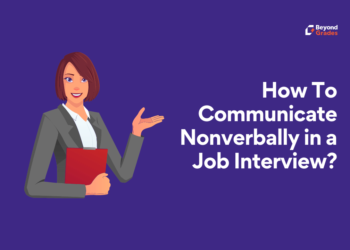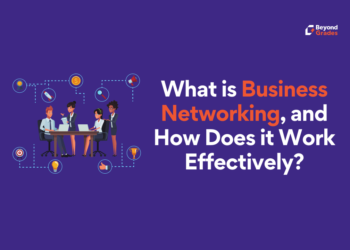[ad_1]
Job interviews are the first personal communication that happens between a job seeker and a prospective employer. Naturally, the first impression about the candidate is created there. Our performance there determines our placement prospects; even if we manage to get selected, our interview performance would have also influenced how we are dealt with in the firm. So it is essential to be better prepared to face the interview.
The competition is stiff in the job market, and being prepared to face an interview alongside the skills you are required to have the job will give you an advantage over other contenders for the job.
Here we will see some of the ten easy to make job interview mistakes committed by candidates.
Being late.
Arriving late to the occasion demonstrates your lack of time management abilities. Showing up late for an interview is a certain way to make a poor first impression; it demonstrates a lack of respect for the hiring manager and a lack of preparedness. Arriving late for an interview may cause other interviewers’ schedules to be disrupted or your interview session to be cut short. Applicants will be notified of the interview time and location. You should plan or organise your actions accordingly and come on time. You must inform the interviewer if an unexpected incident occurred on your route to the interview.
Inappropriate dressing.
It’s critical to appear professional and polished if you don’t want to make your initial job interview mistakes. Although your clothing may differ depending on the position, you’re looking for, it’s crucial to appear well-dressed regardless of the organisation.
Inadequate preparation.
A lack of interview preparation might jeopardise your chances of being employed. During interviews, the question “What do you know about the company?” is frequently asked. Many applicants with all of the requirements for a job damage their chances of getting hired because they have no knowledge of the company, what it stands for, or the services it provides. Conduct thorough research on the company; you may visit their website to learn more about them and their services on the about us page or check their social media accounts for extra information.

Failure to ask good questions.
When interviewers inquire whether the applicant has any questions and the candidate says no, they will be unimpressed. If you have no questions, it means you aren’t interested enough in the job and haven’t given it any thought. You should have a list of prepared questions with you that you may utilise as needed so that you can smarty skip making any such kind of job interview mistakes.
Over talking.
You risk losing their attention when you ramble on and tell the interviewer more than what they want to know. Make sure your responses are targeted and relevant. Preparing and practising your interview responses ahead of time is the best method.
Negative body language.
Body language includes things like a smile, eye contact, handshake, and seating position, all of which might communicate distinct meanings to an employer. A positive body language may provide a positive first impression and can be utilised to demonstrate curiosity, confidence, and excitement for the work.
Introverts or shy people may find this problematic and show lousy body language, leading the employer to believe they are uninterested in the job.
Bringing a drink to the interview session.
Not only is it inappropriate to arrive with a drink in your hand, but also you should be focused on the work at hand during the interview. When you have a drink in front of you, it’s easy to become distracted—for example, fumbling with the cup or missing a question while taking a sip.
And, while it’s a remote chance, taking a drink during an interview might lead to additional embarrassing mishaps, such as spilling the drink on the desk etc.
Resume errors.
You may be required to fill out a job application even if you have supplied a resume while applying for the position. Make sure you have all of the information you’ll need to fill out an application, such as dates of previous work, graduation dates, and company contact information. It’s acceptable if some of your past events are difficult to recollect.
Before your interview, go through the information again. Take the time to rebuild your work history if necessary so that your resume is correct. You should be honest in your resume. The more truthful you are on your resume, the better prepared you are to discuss your previous work experience during your interview.
Negative responses.
Make sure you’re not scandalising your past employer or coworkers. It’s a smaller world than you believe, and you never know who your interviewer knows, including that boss you think is a moron.
You also don’t want the interviewer to think you’ll say something negative about their firm if you depart on bad terms. When you’re applying for a job, you want to show your potential employer that you can work effectively with others and resolve problems maturely and productively, rather than criticising your coworkers or pointing out other people’s ineptitude.
Dishonesty.
Be honest if you don’t know the answer to a question or don’t comprehend the question. Pretending to know something about which you have no knowledge will not get you any points. There are several ways accessible in this age of interconnectedness to verify the veracity of any information supplied by applicants. Allow yourself to relax and be yourself. Answer all questions honestly.
Having seen so far the mistakes and the ways to avoid job interview mistakes, you can make use of them to confidently attend your interviews.
[ad_2]
Source link










